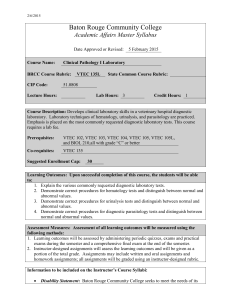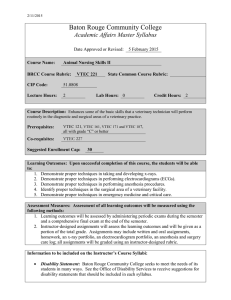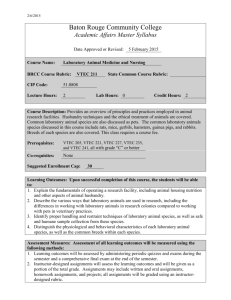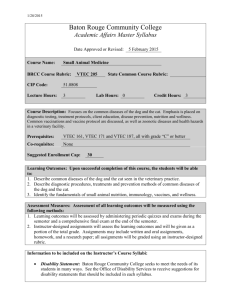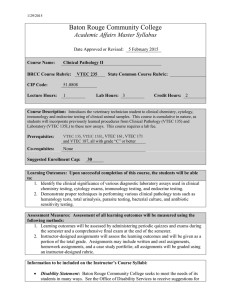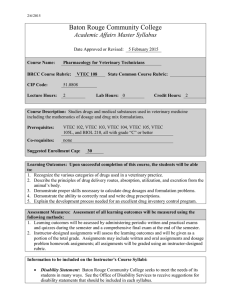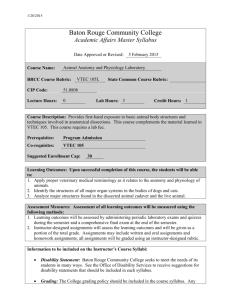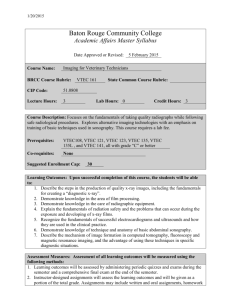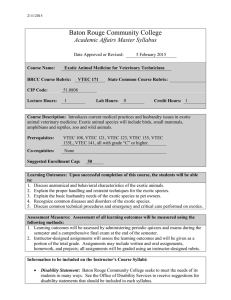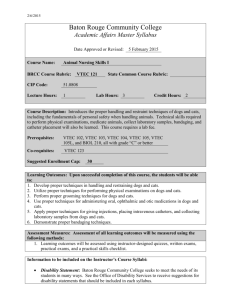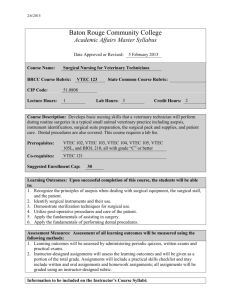Baton Rouge Community College Academic Affairs Master Syllabus
advertisement
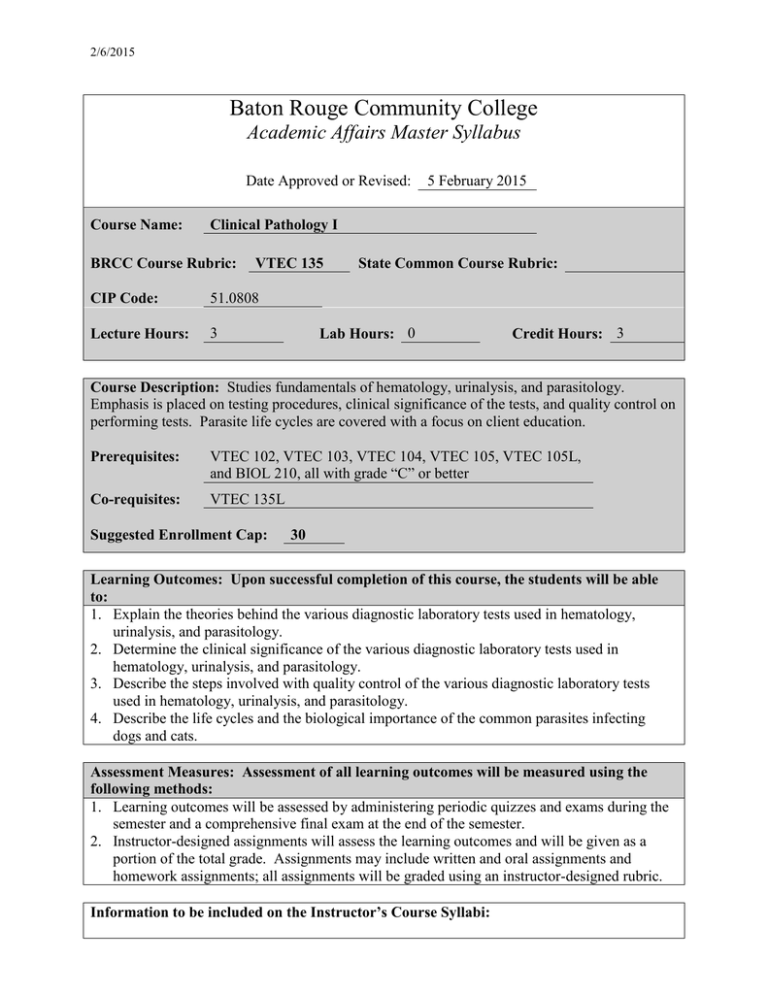
2/6/2015 Baton Rouge Community College Academic Affairs Master Syllabus Date Approved or Revised: Course Name: 5 February 2015 Clinical Pathology I BRCC Course Rubric: VTEC 135 CIP Code: 51.0808 Lecture Hours: 3 State Common Course Rubric: Lab Hours: 0 Credit Hours: 3 Course Description: Studies fundamentals of hematology, urinalysis, and parasitology. Emphasis is placed on testing procedures, clinical significance of the tests, and quality control on performing tests. Parasite life cycles are covered with a focus on client education. Prerequisites: VTEC 102, VTEC 103, VTEC 104, VTEC 105, VTEC 105L, and BIOL 210, all with grade “C” or better Co-requisites: VTEC 135L Suggested Enrollment Cap: 30 Learning Outcomes: Upon successful completion of this course, the students will be able to: 1. Explain the theories behind the various diagnostic laboratory tests used in hematology, urinalysis, and parasitology. 2. Determine the clinical significance of the various diagnostic laboratory tests used in hematology, urinalysis, and parasitology. 3. Describe the steps involved with quality control of the various diagnostic laboratory tests used in hematology, urinalysis, and parasitology. 4. Describe the life cycles and the biological importance of the common parasites infecting dogs and cats. Assessment Measures: Assessment of all learning outcomes will be measured using the following methods: 1. Learning outcomes will be assessed by administering periodic quizzes and exams during the semester and a comprehensive final exam at the end of the semester. 2. Instructor-designed assignments will assess the learning outcomes and will be given as a portion of the total grade. Assignments may include written and oral assignments and homework assignments; all assignments will be graded using an instructor-designed rubric. Information to be included on the Instructor’s Course Syllabi: Disability Statement: Baton Rouge Community College seeks to meet the needs of its students in many ways. See the Office of Disability Services to receive suggestions for disability statements that should be included in each syllabus. Grading: The College grading policy should be included in the course syllabus. Any special practices should also go here. This should include the instructor’s and/or the department’s policy for make-up work. For example in a speech course, “Speeches not given on due date will receive no grade higher than a sixty” or “Make-up work will not be accepted after the last day of class.” Attendance Policy: Include the overall attendance policy of the college. Instructors may want to add additional information in individual syllabi to meet the needs of their courses. General Policies: Instructors’ policy on the use of things such as beepers and cell phones and/or hand held programmable calculators should be covered in this section. Cheating and Plagiarism: This must be included in all syllabi and should include the penalties for incidents in a given class. Students should have a clear idea of what constitutes cheating in a given course. Safety Concerns: In some programs this may be a major issue. For example, “No student will be allowed in the safety lab without safety glasses.” General statements such as, “Items that may be harmful to one’s self or others should not be brought to class.” Library/ Learning Resources: Since the development of the total person is part of our mission, assignments in the library and/or the Learning Resources Center should be included to assist students in enhancing skills and in using resources. Students should be encouraged to use the library for reading enjoyment as part of lifelong learning. Expanded Course Outline: I. Hematology 1) Blood collecting and handling of samples a. Making blood smears 2) Red blood cell tests 3) White blood cell tests 4) Platelet and coagulation tests 5) Homeostasis II. Urinalysis 1) Urine collection and handling of samples 2) Total urinalysis 3) Kidney function blood test III. Parasitology 1) Fecal collection and handling of samples 2) Life cycles of common parasites of the dog a. Biological significance 3) Life cycles of common parasites of the cat b. Biological significance 2
